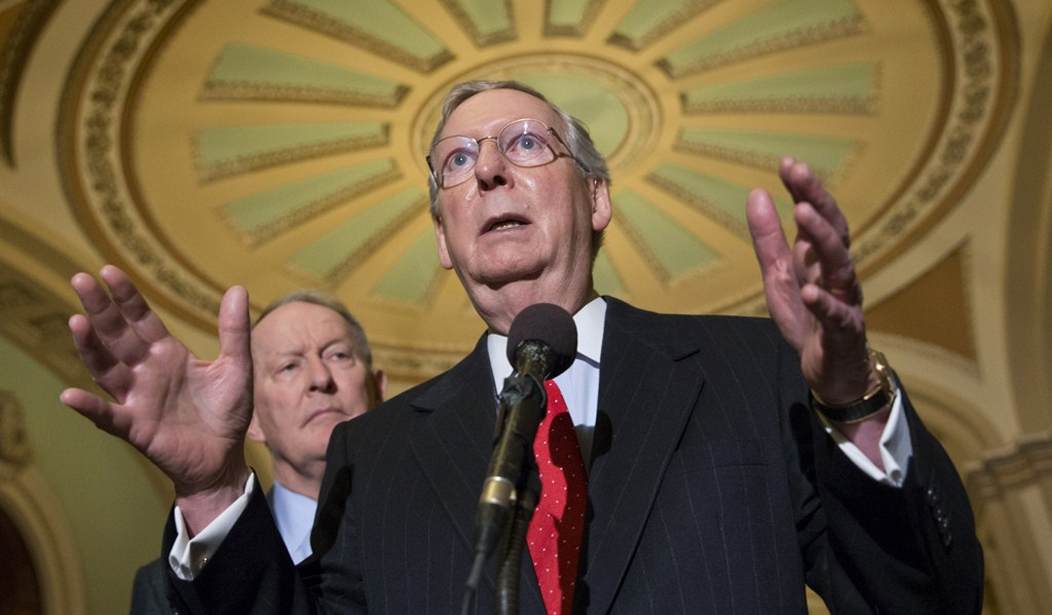I was still in high school when Democrats filibustered the 1964 Civil Rights Act for 60 days, but I remember it as an ugly affair that nonetheless couldn't stop the U.S. Senate from doing what was right. In the end, the Senate mustered the votes of two-thirds of the chamber to move the landmark bill forward, but not before Sens. Robert Byrd, Strom Thurmond, Sam Ervin, Richard Russell and William Fulbright (some of whom later became liberal icons for other reasons) talked around the clock to try to kill the legislation.
As grueling as the process was, it forced debate -- and, yes, that dirty word compromise -- to enact legislation that dramatically altered the course of the country. Had liberal Democrats and Republicans who favored civil rights forced through a bill on 51 votes, the nation might never have fully embraced the changes enacted. The Supreme Court had outlawed segregation in schools in 1954, but the pace of change took decades to accomplish, in part because nine justices, even though girded by the Constitution, couldn't force the social change required. With 71 elected senators embracing the new law, the people had an easier time accepting the historic legislation. Sen. Everett Dirksen -- a Republican who helped secure passage, with larger numbers of his fellow Republicans than Democrats voting in favor -- said it best during the debate: "Stronger than all the armies is an idea whose time has come."
Much has changed since that historic day, not least of all the willingness of partisans on opposite sides to work together. The Senate changed its rule in 1975, lowering to 60 the number of votes needed to end a filibuster. On Thursday, the GOP-controlled Senate changed the rules once again -- this time disallowing a filibuster on Supreme Court nominees altogether, following the precedent set when the Democrats were in control and blocked filibusters for lower-court nominees. I am happy that the eminently qualified Neil Gorsuch will become a Supreme Court justice because of the change, but I'm troubled about what the rule change means for the future of politics in America.
Recommended
Already we've seen Democrats pass the biggest piece of social legislation in 50 years on a simple party-line vote, the Affordable Care Act, by manipulating the rules that allow certain kinds of legislation to be exempt from filibuster. We're likely to see the same maneuvers if and when the GOP gets its act together to "repeal and replace" Obamacare. And of course, the Democrats' putting in place the rule allowing lower-court judges to be confirmed with less than a supermajority when the Senate was in Democratic hands means the federal courts have already become highly politicized and promise to be more so going forward. This is not a good thing, no matter which party is in control.
Ours has been a remarkably stable democracy, with control of Congress and the White House shifting back and forth election to election but the judiciary less susceptible to such swings. That was how our Founding Fathers intended it; why else make federal judges lifetime appointees? Presidents have wide latitude in making such appointments, and there's no question that judicial philosophy plays a role in whom a president chooses. But in the past, the tempering force of the old Senate rules meant few presidents risked putting forth a nominee who was outside the mainstream. President Donald Trump's nomination of Neil Gorsuch was in that tradition; Gorsuch is a mainstream judge. But Democrats, angry with Trump on a host of issues, chose to dig in their heels -- and Senate Republicans followed the Democrats' example by blowing up the remnants of the old rules.
Political majorities don't last forever, and I'm betting those on both sides of the aisle will have ample opportunity in the future to rue the day they started down this path. I'm welcoming Justice Gorsuch but saying a sorry farewell to a tradition that has helped forge consensus at difficult times.

























Join the conversation as a VIP Member